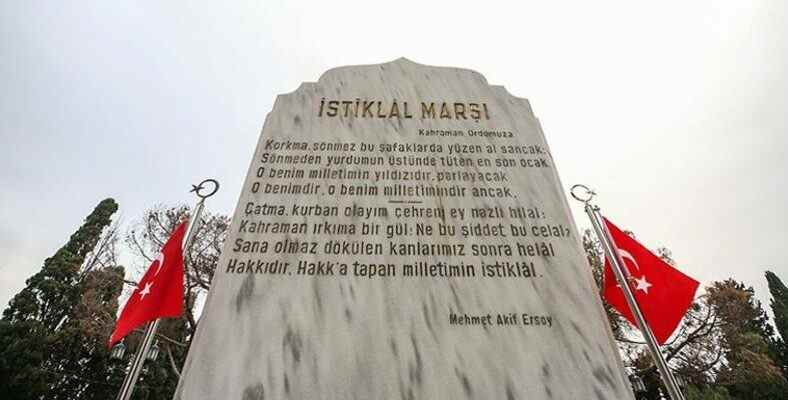The years of the War of Independence, which took place before the establishment of the Turkish Republic, present an unprecedented example of struggle in world history. One of the countless witnesses of this struggle is the National Anthem, which we have been singing proudly ever since. Let’s take a closer look at the story of our national anthem, the National Anthem, which is one of the most precious values of our country.
World history is full of wars and the victories and defeats after these wars. However, one of them changed the fate of not only ours, but the whole world. The War of Independence, which started with the occupation of the Ottoman Empire and its almost extinction, It is an example of an unprecedented struggle in world history. The work that best reflects this unique struggle of the Turkish nation is our national anthem, the National Anthem.
The National Anthem, which was written when no success was achieved and the fate of the war was unknown, was one of the biggest supports of the Turkish nation’s struggle in those days. Our national anthem that reminds us over and over again who we are and tells us that we must fight without fear, no matter who is in front of us. The origin of the National Anthem Let’s take a closer look at how it was written.
This nation needs an anthem:
1920 year. The Ottoman Empire is under the occupation of imperialist states and their tongs from all over the world. Anatolia revolted and officially started the War of Independence. The control of this process is in the National Assembly, which opened on April 23, 1920. Even though the Turkish nation is struggling with heart and soul, unfortunately it is not always possible to see a light at the end of the tunnel.
In this process, the idea of a poetry competition comes to the mind of the Ministry of Education, that is, the Ministry of National Education today. This poem is about those who defend their homeland to the last drop of their blood. It will remind the Turkish nation of itself. This poem; He will give hope to the Turkish nation, instill faith, tell him not to be afraid for a moment, and shout that this country will certainly be saved.
To the attention of our poets:
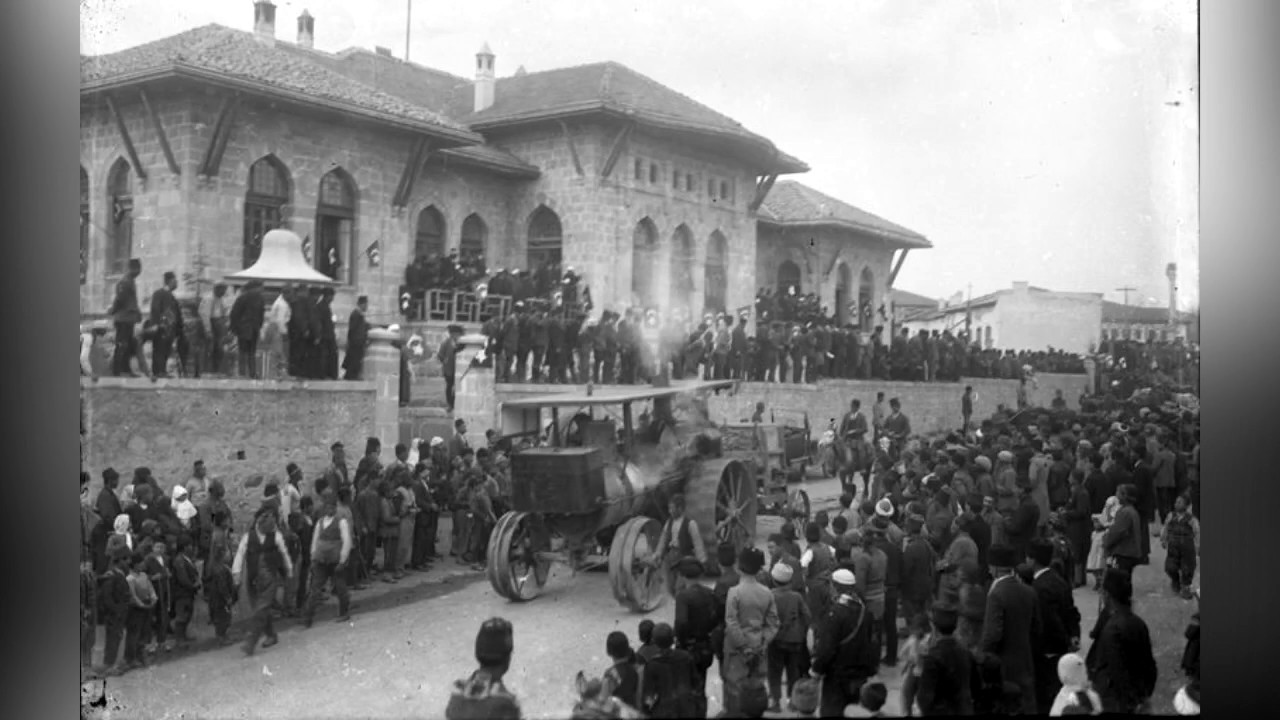
This poetry competition, which was also approved by Mustafa Kemal, In the newspapers supporting the national struggle in 1920 It was announced with the following text;
“To the attention of our poets:
In order to express and sing the struggle of our nation for the sake of independence both internally and externally, a National Anthem was preached to the competition by the Umur-u Education Deputy Galilee. This competition will be until the date of the 23rd Law-u year 36, and a committee of literature will be selected from among the works sent, and a prize of five hundred lira will be given for the lyrics of the accepted work.
And again, a separate competition will be opened for the composition, which will be allocated five hundred liras. All applications will be made to the Ministry of Education of the Grand National Assembly in Ankara.”
Until the deadline of 23 December 1920, a total of 724 poems participated. Among the poets of these poems were important names such as Kazım Karabekir and Hüseyin Suat Yalçın. Unfortunately, none of these poems were found good enough in the examination made by the Ministry of Education. A name that did not participate in the competition came to the mind of Deputy Education Minister Hamdullah Suphi.
“The achievements of the nation cannot be praised with money.”
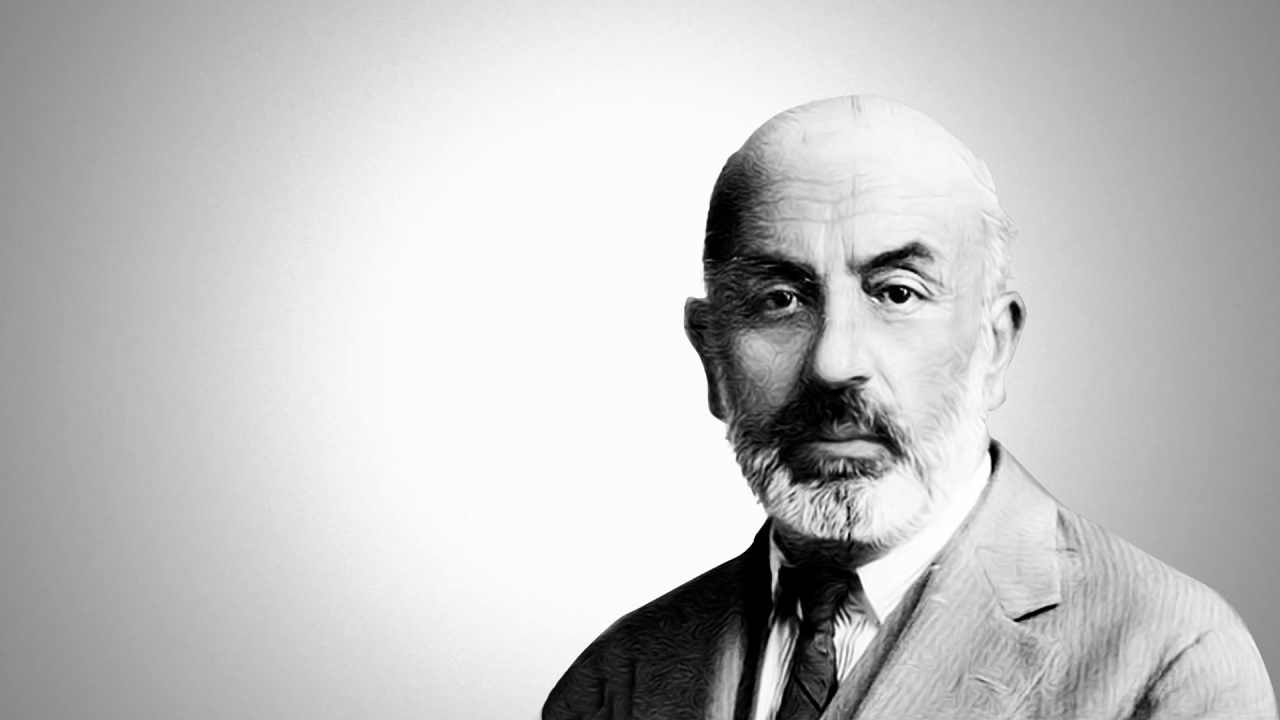
Poet Mehmet Akif was one of the biggest supporters of the national struggle. He gave speeches in mosques, wrote numerous articles in newspapers and called on people to support this struggle. However, he did not participate in the national anthem competition. For him, the achievements of the nation could not be praised with money. Akif, He did not participate in the competition because there was a cash prize.
Mehmet Akif, who was invited to write a poem by the letter of the Minister of Education, Hamdullah Suphi Bey, dated February 5, 1921, He accepted this invitation without receiving any money. He locked himself in his room in the Taceddin Lodge in Ankara, where he lived at that time, and began to write the unique poem he dedicated to the Turkish army.
The National Anthem was accepted with applause:
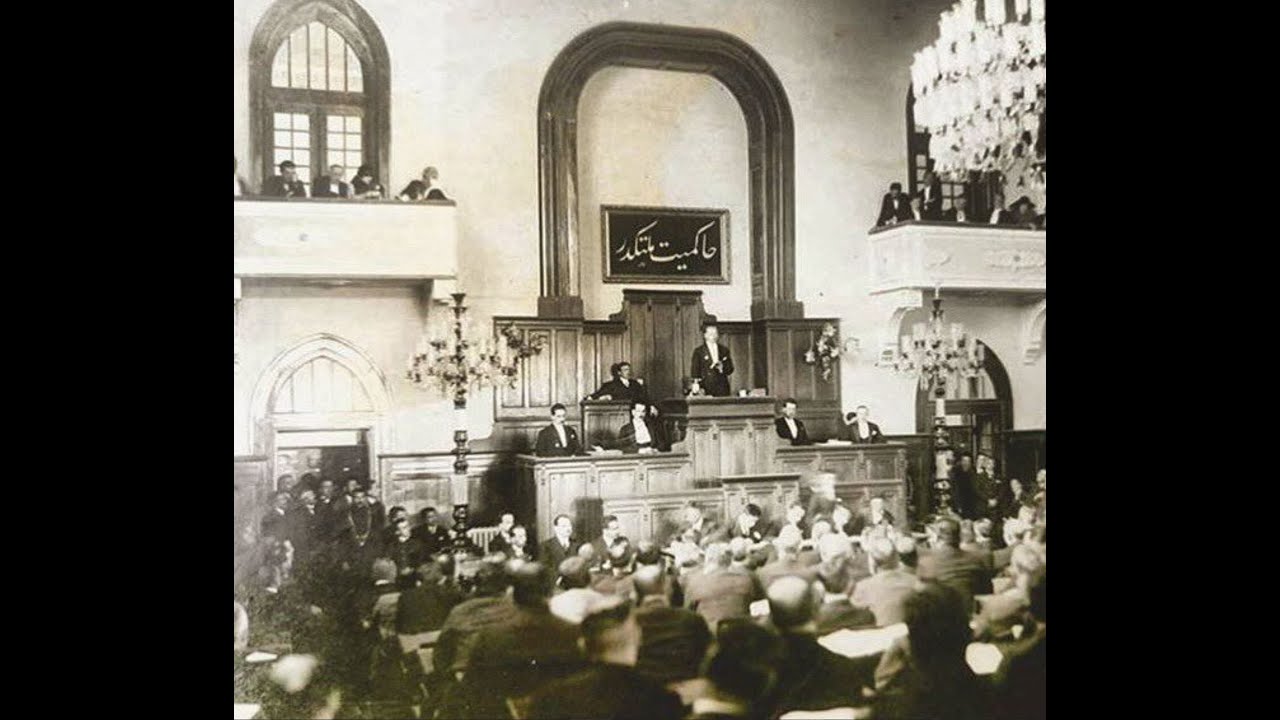
The National Anthem, written by Mehmet Akif, together with the seven poems that passed the pre-selection, was held at the parliamentary session on 12 March 1921 under the chairmanship of Mustafa Kemal. It was the first poem read. The poem read by the Deputy Minister of Education, Hamdullah Suphi Bey, was applauded by the whole assembly, read again and accepted by a majority of votes without the need for the others to be read.
The National Anthem, accepted by the National Assembly, was published in all newspapers supporting the national struggle and was sent to the soldiers at the front fighting all over the country. The 500 lira award, which was not accepted by Mehmet Akif, was given to the poor women and children established at that time. It was donated to Darülmesai. Since Akif dedicated this poem to the Turkish army, he did not include it in any of his books or even in Safahat, where all his poems are collected.
Who is the composer of the National Anthem?
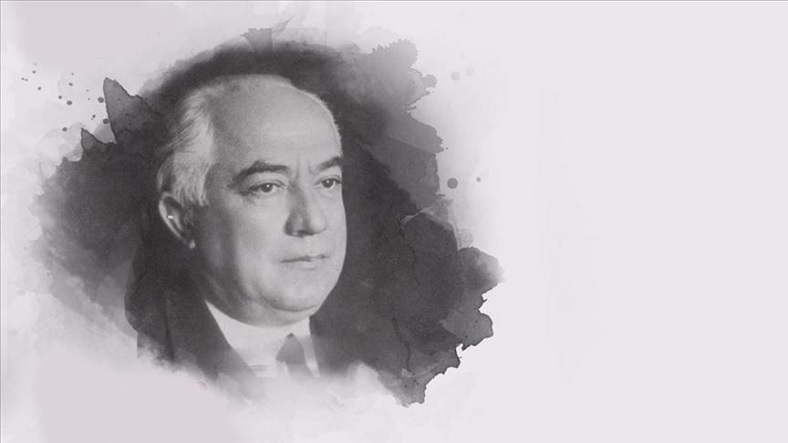
The National Anthem caused great excitement in the Turkish nation, but on the one hand, the war continued with all its violence. Because The composition of the anthem was delayed for two years. On February 12, 1923, a composition competition was opened by the Istanbul Education Directorate. The National Anthem, written by Mehmet Akif, was composed by 24 different people as part of the competition.
The competition could not be concluded because the difficult conditions in the country continued and Different compositions began to be read in different parts of the country. The National Anthem was sung for a while with the compositions of Osman Zeki Bey in Ankara, Ali Rıfat Bey and Zati Bey in Istanbul, İsmail Zühtü Bey in Izmir and Ahmet Yekta Bey in Edirne.
The committee convened in 1924 first accepted the composition of Ali Rıfat Çağatay. However, later Replaced in 1930 and Presidential Symphony Orchestra Conductor Osman Zeki Üngör, the composition that we still use today was accepted. Only the first two stanzas of the poem are sung as anthem. In 2013, some arrangements were made on the composition.
‘May God not let this nation write the National Anthem again’
The National Anthem has been criticized by some people at the time it was written, as it is today. There was even talk of rewriting. While he was ill, one of his visitors asked Mehmet Akif if it would be better if the National Anthem was rewritten. Akif’s answer was like an earring for all of us; “May God never let this nation write the national anthem again.”
National Anthem with 10 stanzas:
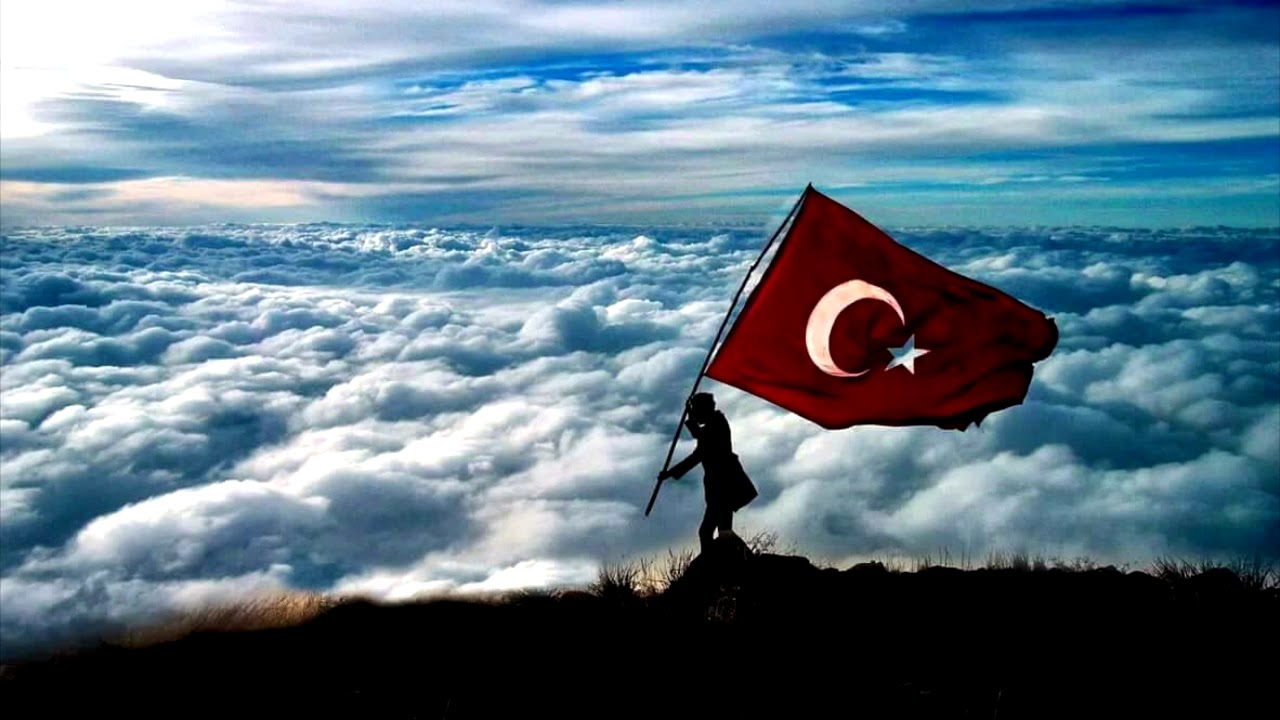
-To Our Hero Army-
Do not be afraid, the red banner floating in these unquenchable dawns;
The last stove that is smoking on my country before it goes out.
He is the star of my nation, he will shine;
It is mine, it belongs to my nation, however.
Don’t fall, let me be a victim face, O coy crescent!
A rose for my heroic race… what is this violence, this majesty?
Our spilled blood then you will not lawful,
It is right, the one who worships God, the independence of my nation.
I have lived free since eternity, I will live free.
Which madman would chain me? I’m surprised!
I am like a roaring flood; trample me, transcend me;
I’ll tear apart mountains, exceed the heavens and still gush out.
Steel armored wall, if it has covered the world of the West;
I have a border like my breast full of faith.
Nation, do not be afraid! How can such a faith suffocate,
“Civilization!” The one-toothed monster you said?
Friend! Do not let the scoundrels into my country;
Barricade your body, let alone this indecent flock.
The days that God promised you will arise…
Who knows, maybe tomorrow, maybe the near future.
The places you step on are “soil!” don’t go by saying, get to know!
Think of the thousands of people lying without a shroud underneath.
You are the son of a martyr, do not hurt your father, it is a shame;
But may He not deprive me of my one true homeland for the world.
Who would not be sacrificed for the sake of the heavenly homeland that?
To gush Martyrs land tighter the şüheda!
Let Huda take my soul, my soul, all my possessions,
Do not let me be a dwarf from my only homeland in the world.
My soul’s desire from you, Divine, is this:
Don’t let the private hand of my temple touch your chest!
These adhans, whose testimony is the foundation of religion
Eternal homeland on my groaning
Then I will prostrate a thousand times in ecstasy, if I have one;
From every cerîham, Divine, my divorced and bloody age,
My soul comes out of the ground like a mucerred;
Then my head maybe worth rose Throne.
O glorious crescent at dawn on you as fluctuating;
Now get all my lawful bloodshed.
There is no for you forever, no for my race, izmihlâl:
It is right, the freedom of my flag that lived free;
It is right, the independence of my people who worship God!
Our country is one of the most precious values of the Republic of Turkey and The National Anthem, the symbol of the independence of the Turkish nation We talked about what you need to know about it and the story of its writing. You can share your thoughts in the comments.
